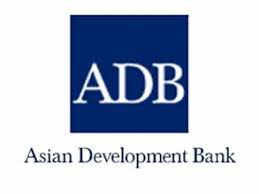
Due to China's troubled real estate market and the region's ongoing high interest rate environment, the Asian Development Bank lowered its regional growth prediction for 2023 to 4.7%.
This represents a small reduction from the bank's earlier forecast of a 4.8% expansion.
“The PRC’s property market poses a downside risk and could hold back regional growth,” ADB said in its outlook report released Wednesday. China’s property sector has languished ever since Evergrande defaulted in 2021.
ADB also reduced its estimate of 4.9% rather than 5% growth in China.
In the first half of 2023, the region's economies saw a fall in exports due to a downturn in global demand, according to the research.
“Slowing external demand is starting to weigh on manufacturing and a number of economies in the region, including China and Southeast Asia,” ADB’s chief economist Albert Park said.
El Nio-related increases in food prices, according to Park, have also contributed to the deterioration. The price of rice, a significant staple in the area, has reached 12-year highs.
“Although inflation is coming down, prices are still somewhat elevated and we’re seeing with high interest rates, cautious attitude by some investors in different parts of the region.”
ADB further explained the change in the study by blaming "slower expansions in East Asia, South Asia, and Southeast Asia."
The growth estimate for India was also reduced from 6.4% to 6.3%.
The research did point out that South Asian expansion will continue to be significant.
“South Asia will still be the fastest growing subregion, led by India and driven by strong investment and consumption,” the report said, highlighting that public investment in India had remained robust, and will continue to drive growth there.
However, ADB observes positive economic trends in some countries.
Based on "resilient windfall spillovers from the Russian invasion of Ukraine," the report noted, the region of the Caucasus and Central Asia saw an increase from 4.4% to 4.6%.
In addition to increased investment, Uzbekistan's growth has been higher than anticipated as a result of expanding agricultural and textile exports to Russia.
“A lot of money and people continue to flow from Russia, into some of the neighboring economies,” said Park, who projects that these “unexpected benefits” from the war in Ukraine would continue. The region is closely linked with Russia through trade.
Similar to this, the lender increased, encouraged by a promising tourism outlook, its prediction for growth in the Pacific areas from 3.3% to 3.5%.
It's the tale of resurgent tourism and the execution of some sizable infrastructural initiatives that are supporting growth.
According to the ADB, inflation in developing Asia would drop from 4.4% last year to 3.6% this year.
(Source:www.cnbc.com)
This represents a small reduction from the bank's earlier forecast of a 4.8% expansion.
“The PRC’s property market poses a downside risk and could hold back regional growth,” ADB said in its outlook report released Wednesday. China’s property sector has languished ever since Evergrande defaulted in 2021.
ADB also reduced its estimate of 4.9% rather than 5% growth in China.
In the first half of 2023, the region's economies saw a fall in exports due to a downturn in global demand, according to the research.
“Slowing external demand is starting to weigh on manufacturing and a number of economies in the region, including China and Southeast Asia,” ADB’s chief economist Albert Park said.
El Nio-related increases in food prices, according to Park, have also contributed to the deterioration. The price of rice, a significant staple in the area, has reached 12-year highs.
“Although inflation is coming down, prices are still somewhat elevated and we’re seeing with high interest rates, cautious attitude by some investors in different parts of the region.”
ADB further explained the change in the study by blaming "slower expansions in East Asia, South Asia, and Southeast Asia."
The growth estimate for India was also reduced from 6.4% to 6.3%.
The research did point out that South Asian expansion will continue to be significant.
“South Asia will still be the fastest growing subregion, led by India and driven by strong investment and consumption,” the report said, highlighting that public investment in India had remained robust, and will continue to drive growth there.
However, ADB observes positive economic trends in some countries.
Based on "resilient windfall spillovers from the Russian invasion of Ukraine," the report noted, the region of the Caucasus and Central Asia saw an increase from 4.4% to 4.6%.
In addition to increased investment, Uzbekistan's growth has been higher than anticipated as a result of expanding agricultural and textile exports to Russia.
“A lot of money and people continue to flow from Russia, into some of the neighboring economies,” said Park, who projects that these “unexpected benefits” from the war in Ukraine would continue. The region is closely linked with Russia through trade.
Similar to this, the lender increased, encouraged by a promising tourism outlook, its prediction for growth in the Pacific areas from 3.3% to 3.5%.
It's the tale of resurgent tourism and the execution of some sizable infrastructural initiatives that are supporting growth.
According to the ADB, inflation in developing Asia would drop from 4.4% last year to 3.6% this year.
(Source:www.cnbc.com)





